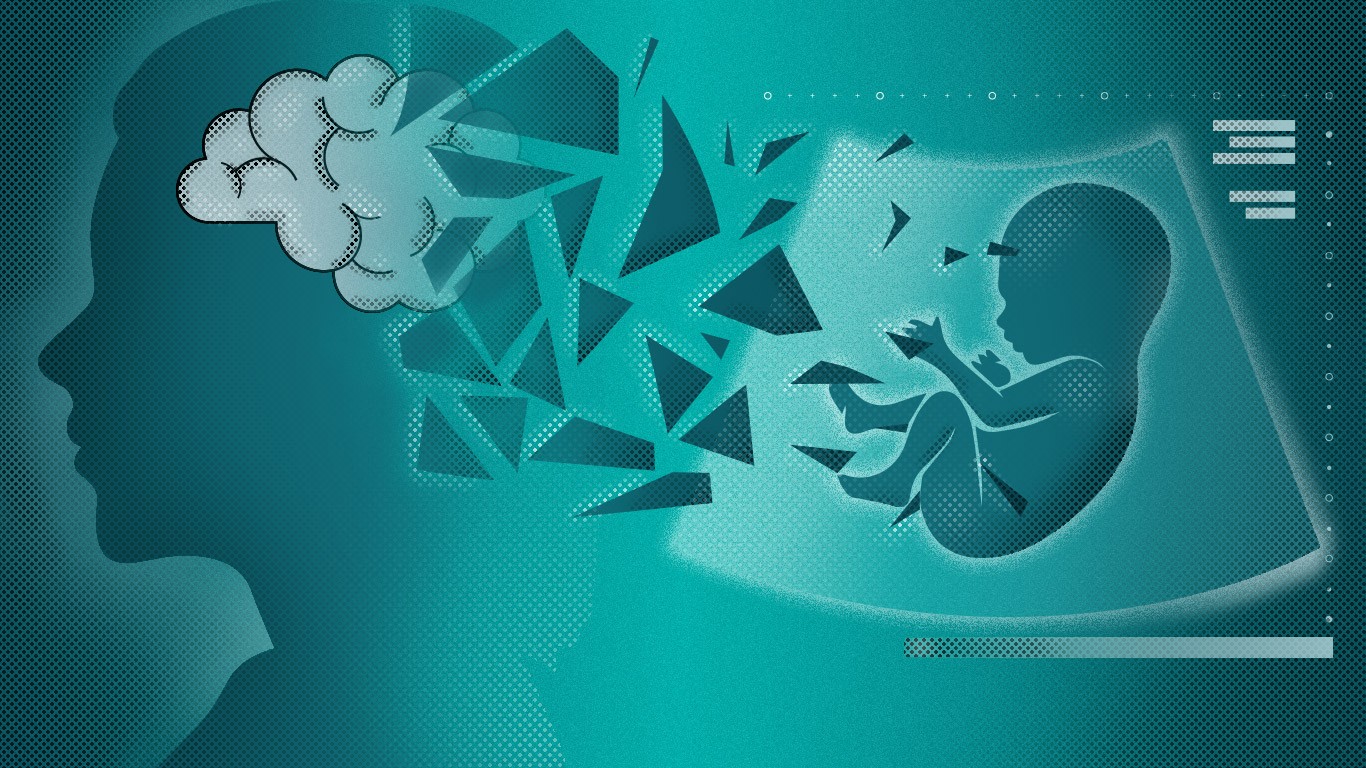
MANAGING PSYCHOSIS IN PREGNANCY STILL CHALLENGING
In this section
How best to manage women with mental health disorders during pregnancy is still surrounded by significant uncertainty as was highlighted during an educational symposium at the 33rd European College of Neuropsychopharmacology (ECNP) Congress, held online 12–15 September 2020. The symposium, which was one of the most watched sessions of the Congress, examined some of the complexities surrounding the risks and benefits of treatment or no treatment, and how to interpret the available evidence on the use of psychotropic medications.
Difficult decisions need thoughtful, compassionate clinicians
The use of psychotropic medications before, during and immediately after pregnancy is an important issue that can be a double-edged sword for clinicians, said Ian Jones, Director of the National Centre for Mental Health and Professor of Psychiatry in the Division of Psychiatry and Clinical Neurosciences at Cardiff University. It can be a case of “damned if we do and damned if we don’t,” he suggested, observing that there was definitely a need for more data to help guide discussions during consultations. Even then, however, decisions would not be easy to make and more data in itself may not change that.
“Thoughtful and compassionate clinicians working with individual women and their partners to make difficult decisions will still be needed,” Prof. Jones said. It is not an area that can be automated or made simpler by a computer algorithm, he argued.
Perinatal period a time of greatest risk
As one of the leaders of the Bipolar Disorder Research Network, Prof. Jones has been involved looking at how to identify and manage women at high risk for severe postpartum psychosis and postnatal depression.
Pregnancy can be a potent trigger for mental illness, Prof. Jones highlighted, with the perinatal period posing the period of greatest risk for some women. Notably those with bipolar affective disorders, but also women with schizophrenia-like disorders, were at particularly high risk for hospital re-admission following childbirth.1
Women need to be supported, Prof. Jones said, and not feel like they are being dissuaded from becoming pregnant or just being given a lot of negative information.2 A high percentage of pregnancies may be unplanned, and that is not just in women with pre-existing mental illness. This shows that the possibility of pregnancy needs to be considered in all women of reproductive age, Prof. Jones suggested.
Balancing risks and benefits
The risk for and against using medications in pregnant women needs careful weighing up. The risk of drug treatment is not only about protecting the fetus during pregnancy, but also about preventing neonatal toxicity and withdrawal, and potential longer-term neurodevelopmental and cognitive problems in the child.
Not prescribing or withdrawing medication could also have important implications for the mother. For example, withdrawing mood stabilising treatment during pregnancy had been shown to lead to a resurgence of symptoms in women bipolar disorder.3
Making decisions about how to use medication in pregnancy is complex and difficult because the data that are available are often not robust enough or conflicting. Historically these data are from case reports, retrospective studies, and in those with non-psychiatric diagnoses such as epilepsy. Even when there are a lot of data, such as on antidepressant use, it is still difficult to disentangle what the implications of these data should be.
Navigating through data
Data on the use of medications during pregnancy are complex, agreed Megan Galbally, Foundation Chair in Perinatal Psychiatry and Medical Co-Director Women’s Health, Mental Health and Genetics, The University of Notre Dame Australia and Murdoch University. These data are nuanced and difficult to shoehorn into a single recommendation, she suggested.
One of the problems is that data are often obtained from studies that were not originally designed to look at perinatal mental health and have used very crude measures to define the disorder and how it is treated, Prof. Galbally said. Furthermore, data on measures of exposure are often very rudimentary, and co-exposures such as other drug use, smoking, or other psychiatric disorders may not have been considered. For example, studies looking at prescribing practices may have just looked at whether or not a prescription was given or a drug dispensed and not at the doses or duration of treatment, or how those parameters may have affected outcomes.
Things to consider when prescribing in pregnancy
Prof. Galbally proposed several things to consider when prescribing psychotropic medication to a pregnant patient.
First the need to balance the risk of treatment against those of not treating, as well as the benefits of treating.
Second, to choose an agent that is effective and to then use this at an effective dose – undertreating carries two risks – that of having an untreated woman while still exposing the fetus to possible effects of a medication.
Third, understanding the current pregnancy risks associated with an agent and how well established these are.
Fourth, consider that the dose of a medication may need adjustment over the course of pregnancy and into the postpartum period. Hepatic, renal, competing pregnancy complications and treatments, pharmacogenetics should all be considered.
Fifth, and probably most important is to obtain informed consent.
Regarding her last point, Prof. Galbally noted that there were seven key elements to ensuring informed consent was obtained: competence, voluntariness, disclosure, recommendation, understanding, decision and authorisation. These are covered in detail in a book looking at the Psychopharmacology and Pregnancy of which she is one of the main editors.4
References
- Munk-Olsen T, Munk Laursen T, Mendelson T, et al. Risks and predictors of readmission for a mental disorder during the postpartum period. Arch Gen Psychiatry. 2009; 66 (2): 189–95.
- Dolman C, Jone IR, Howard LM. Women with bipolar disorder and pregnancy: factors influencing their decision-making. B J Psych Open, 2016; 2 (5): 294–300.
- Viguera AC, Whitfield T, Baldessarini RJ, et al. Risk of recurrence in women with bipolar disorder during pregnancy: prospective study of mood stabilizer discontinuation. Am J Psychiatry. 2007;164(12):1817–24.
- Galbally M, Snellen M, Lewis A (eds.). Psychopharmacology and Pregnancy. Treatment efficacy, Risks and Guidelines. Springer, 2020.




